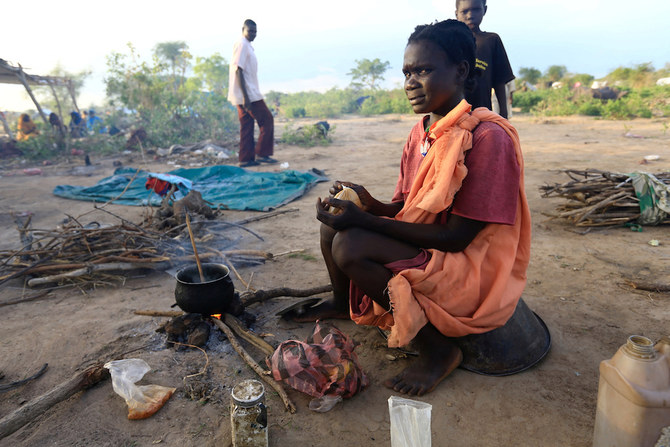NEW YORK CITY: The US representative to the UN on Thursday painted a dire picture of the situation affecting the people of Sudan, which she said continues to be “the worst humanitarian crisis in the world.”
Linda Thomas-Greenfield lamented the international silence regarding the tragedy that is unfolding in the civil war-ravaged country, and the failure of donors to honor a significant proportion of their financial pledges of aid for Sudan made during an international conference in Paris on April 15.
The conflict in the country erupted in April 2023, between two rival factions of the country’s military government: the Sudanese Armed Forces under Gen. Abdel Fattah Al-Burhan, and the paramilitary Rapid Support Forces led by Mohammed Hamdan Dagalo, more commonly known as Hemedti.
More than 10 million Sudanese civilians have been displaced by the conflict, including more than 2 million who have fled to neighboring countries in search of safety, Thomas-Greenfield said. The number of refugees from Sudan in Chad alone doubled during the first 12 months of the conflict, with more civilians fleeing there in a single year than during the previous 25 years combined, she added.
About 25. 6 million people now face food insecurity at crisis level or worse, Thomas-Greenfield said. About a third of them are dealing with emergency conditions and 750,000 people, including women, children, the very old and the very young, are at risk of famine and starvation.
Recalling her trip to a refugee camp in Chad last year, she said people were “eating dirt to survive, tree leaves for nutrition,” and children were so weak “they lacked energy to even cry.”
She added: “The room was quiet, totally quiet. That level of suffering is occurring all over Sudan, over and over and over again.
“I’ve said (before that) this is the worst humanitarian crisis in the world. And that has not changed. And sadly, the silence I heard that day in Chad has been met with even more silence across the world.”
Three months after the conference Paris, Thomas-Greenfield said, only two-thirds of the pledges have been paid out and only about a quarter of the required response to the crisis has been funded.
She also warned that humanitarian access to the country, which is “already severely restricted by the parties to the conflict, threatens to even further shrink.”
She highlighted in particular continued obstruction by the Sudanese Armed Forces at the Adre crossing on the border between Chad and West Darfur.
“This obstruction is completely unacceptable,” she said. “To make matters worse, experts predict that the rainy season will decrease already severely restricted cross-border access,
all while floodwaters worsen the already dire conditions in IDP (internally displaced persons) camps, putting hundreds of thousands at risk of waterborne diseases.”
Although the scale of the crisis is “overwhelming,” Thomas-Greenfield stressed that “now is not a moment to throw up our hands.”
She announced a further $203 million in humanitarian assistance from the US for the civilians in Sudan, Chad, Egypt and South Sudan who have been affected by “this brutal conflict,” and expressed hope that “this new round of aid serves as a call to action for others to follow suit.”
But she added that “this money is not a panacea,” and vowed her country will continue to urge the warring parties in Sudan to support “an immediate ceasefire and to remove barriers to humanitarian access and delivery of aid.”


















